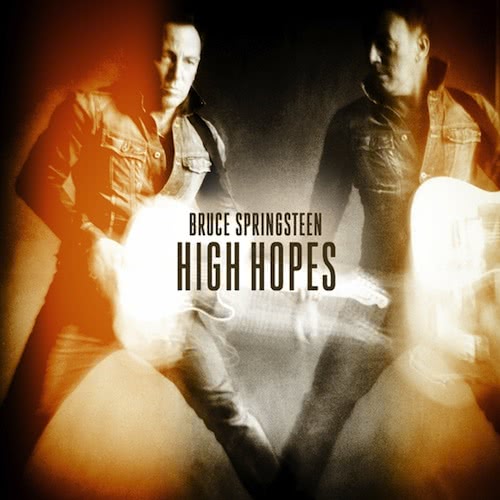Few things have remained consistent throughout Bruce Springsteen’s career apart from the musician’s penchant for particularly bad album covers.
But The Boss’ 18th studio album sounds just like the E Street powered Springsteen we’ve come to expect.
The question that remains is whether Springsteen is at his classic best or if he’s just floating through his 21st century recording career with the same lacklustre consistency – The Rising permitting – that we’ve become accustomed to.
The majority of High Hopes are the leftovers from The Rising, Magic and Working On A Dream sessions. While The Rising made Springsteen and The E Street Band relevant again in a post 9/11 world, Magic and Working On A Dream stand as the musician’s two worst releases in an otherwise fabled catalogue.
That is to say, High Hopes is as exactly as it sounds on paper. Sonically inconsistent, cluttered, and with too few stand out moments.
The title track opens with percussive rhythms and an electric jazz quality that gets caught in mid gear, just as ‘Harry’s Place’ languishes in a seedy underground that is barely saved by the appearance of the late great Clarence Clemons on his sax.
But the biggest disappointments come in the form of the reworked tracks ‘The Ghost Of Tom Joad’ and ‘American Skin (41 Shots)’.
Love Music?
Get your daily dose of metal, rock, indie, pop, and everything else in between.
Both songs are important assets to The Boss’ career. The former is the title track of his best solo album. The latter caused a political stir in 2000 with the lyrics inspired by the police shooting of an unarmed man.
Neither matches the intensity of their live counterparts, and whether guitarist Tom Morello – who features on both tracks – had a negative influence on the recordings is a question worth debating.
Still, there are moments here that fans should be able to appreciate. Both ‘The Wall’ and a cover of Suicide’s ‘Dream Baby Dream’ work because of their simplicity.
While the album will go down as largely irrelevant in the musician’s discography, what High Hopes does do is act as a remarkably apt analogy for The Boss’ 21st century career. It’s a mixed bag of quality with only sparing moments of the working class relatability that made him famous in the first place.
Listen to ‘High Hopes’ here:

































